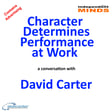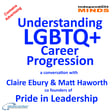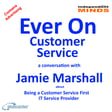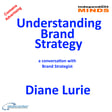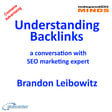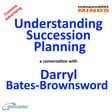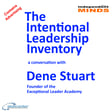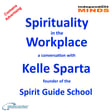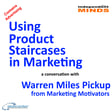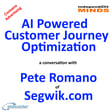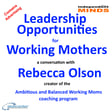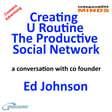
The Commercial Advantages of Neurodiverse Employees - a conversation with Paul Hargreaves of Cotswold Fayre.
Paul Hargreaves is the founder of certified B-Corp food wholesaler Cotswold Fayre, and restaurant Flourish.
He is also an award-winning business author of two books The Fourth Bottom Line and Forces for Good.
When Paul established Cotswold Fayre, and later his restaurant Flourish he committed to creating an inclusive employer that would welcome people to the team who might face challenges finding work.
In this episode of the Abeceder podcast The Independent Minds, Paul shares with host Michael Millward the lessons he learnt about how to create a commercial advantage from being an inclusive employer.
Paul explains the original catalyst for establishing a business, and how that business grew.
He details some of the challenges of employing a diverse workforce and especially people with a neuro diversity. As counter balance to those challenges Paul also shares the positive impact that working has on people and their families.
You will leave this podcast with an enthusiasm for investigating how your organisation might benefit from proactively recruiting a more diverse workforce.
More information about Paul Hargreaves and Michael Millward is available at abeceder.co.uk.
The Independent Minds is made on Zencastr, because as the all-in-one podcasting platform, Zencastr really does make creating content so easy.
If you would like to try podcasting using Zencastr visit zencastr.com/pricing and use our offer code ABECEDER.
Travel
Cotswolds Fayre is based in the Cotswolds in the UK. With discounted membership of the Ultimate Travel Club, you can travel to the Cotwolds or anywhere else at trade prices on flights, hotels, trains, and so many more travel related purchases.
Fit For Work Look after your health and you will be fit for work.
We recommend The Annual Health Test from York Test; a 39-health marker Annual Health Test conducted by an experienced phlebotomist Hospital standard tests are carried out in a UKAS-accredited and CQC-compliant laboratory.
A secure Personal Wellness Hub provides easy-to-understand results and lifestyle guidance
Visit York Test and use this discount code MIND25.
Three the network Visit Three for information about business and personal telecom solutions from Three, and the special offers available when you quote my referral code WPFNUQHU.
Being a Guest
We recommend that potential guests take one of the podcasting guest training programmes available from Work Place Learning Centre.
We use Matchmaker.fm to connect with potential guests If you are a podcaster looking for interesting guests or if you have something interesting to say Matchmaker.fm is where matches of great hosts and great guests are made. Use our offer code MILW10 for a discount on membership.
We appreciate every like, download, and subscriber.
Thank you for listening.
